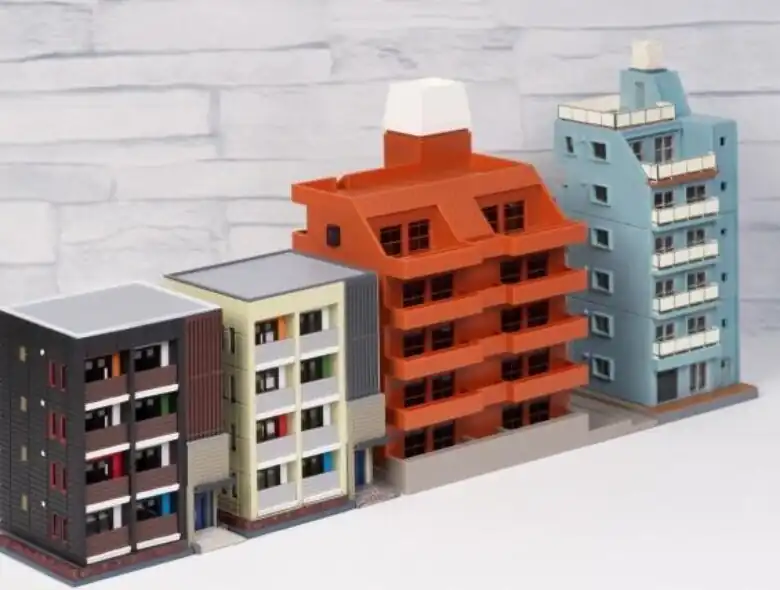People moving to Tokyo (or other cities) are often unfamiliar with the different neighborhoods. They may think it is good enough to have cheap rent and a nice commute. This is especially true for people who work remotely, as there’s no need to commute, so there is an increase in the number of people without a preference for where to live.
However, if you randomly decide on a place to live, you may have second thoughts like, “It’s not safe.”, “It’s difficult to get around.” or “I wish the rent were cheaper.”
Let’s discuss how to decide where you want to live if you are not particular about the location. We will also go over the pros and cons of living in a city versus a rural area. This is a guide for people without any preferences for where they live.
If you are looking for a place to live within a vast range of areas and would like to live in a great apartment at a low price, please take a look at the Village House website.
Reasons You Can’t Decide on a Best Place to Live

It’s becoming more common for people to choose their homes based on cheap rent or the ease of work commute. Not to mention, in recent years, more companies have started doing remote work, so it isn’t unusual for people to have their personal lives take precedence when choosing a place to live.
That said, not every home will be ideal to live in. Therefore, if you are unsure how to choose where to live, we will introduce some things to prioritize in the next part.
How to Set Your Priorities

Review the following key points when figuring out how to choose where to live:
- Location or rent?
If location is a priority, it would be a good idea to search for a location near a station, your workplace, or a location that is easily accessible from a big station area. If you prioritize rent, choose an area where the market price is reasonable.
- Convenience or security?
If convenience is your priority, look for a location with commercial facilities, such as a downtown area or a large shopping mall. On the other hand, if safety is your priority, we recommend avoiding downtown areas and choosing places with many families or quiet residential areas.
- Find out if it’s an easy place to live.
Once you have decided where you want to live, checking out if it is an easy place to live is essential. It should be somewhere your necessities are met. For example, it matches your lifestyle, such as rent prices, transportation access, and convenient shopping.
If you need help deciding where to live, consider your workplace.

If you can’t decide where to live, we recommend looking for a property within 30 minutes of commuting time. Shorter commutes mean less time on crowded trains, which can reduce stress. Moreover, you won’t have to worry about overcrowded trains or delays if you live within walking distance.
Also, if your company offers rent assistance as part of its benefits program, choose a location eligible for housing allowance. You may be able to live somewhere more affordable than living in a cheap rental property in the suburbs.
However, the conditions for paying housing allowance depend on the company. If you are considering housing allowance, check them out in advance, as the scope of allowance is limited. It could be conditions like “within a radius of 0 km from your workplace” or “up to 2 stations away from the nearest station to your workplace.” Depending on the requirements, you may be able to lower your rent by choosing to live in the suburbs.
Pros and cons of living in the city

Advantages of City Living
・Lifestyle and transportation are highly convenient
The city has many transportation options and frequent trains, making it convenient. There are also plenty of convenience stores and large shopping malls. There are even places where you can shop and eat inside the station, so you will have no trouble living without a car.
・Abundance of choices
The appeal of cities is that they have many entertainment facilities, such as karaoke and bowling alleys, as well as a variety of restaurants and other places to choose from. There are also many events and live performances, making it an environment where you will never be bored in your free time.
・Easy to expand your connections
Living in a city gives you more opportunities to meet people, making expanding your network easier. In recent years, online communication has made communicating easier in rural areas. Still, it is easier to exchange information face-to-face in urban areas.
・Neighborhood relationships are minimal
If you are uncomfortable with keeping up with your neighbors and want to minimize those relationships, we recommend living in a city. You might greet your neighbors in the city, but there is no need to form deep relationships with them, such as their knowing names or family details. If you want to live freely without worrying about other people’s eyes, choose a home in the city.
Disadvantages of City Living
・Commuting is stressful
In cities with large populations, commuting to work or school on crowded trains can be stressful. It’s crowded when you go to work, and sometimes you have to stand for 30 minutes to an hour. Thus, many people are tired when they arrive at work.
・Rent and cost-of-living is high
Cities are expensive, so your cost of living increases. For example, a rental property of the same size can be 40,000 yen in a rural area but 100,000 yen in a city with the same conditions. Even though the wage level is higher in urban areas, it does not mean there is a 3-4 times difference in rental payments. Therefore, living a financially comfortable life in rural areas is easier.
Pros and cons of living in a rural area

Advantages of rural living
・Live a relaxing life close to nature
For people who like to live relaxed and at their own pace, we recommend living in a rural area with abundant nature, such as the ocean, mountains, and/or rivers nearby.
Efficiency and speed are not important aspects of rural living. This allows you to live a stress-free and healthy life. For remote workers, you can enjoy a peaceful life while working where you like.
・Low rent and cost-of-living
In rural areas, you may be able to rent a house for 30,000 yen per month. We recommend living in a rural area if you want to save money. Rent and fixed costs are lower than in the city.
Another advantage of living in a rural area is that fresh food is cheap and delicious. You can buy freshly harvested vegetables picked in the morning and fish just caught and end up with a highly satisfying diet.
・No stress from crowded trains
Although it depends on the location, people in rural areas generally do not use trains to commute to work or school. This may be due to the distance from home to the nearest station and/or the limited number of trains. Living in a rural area may be suitable for you if you don’t like crowded trains or crowds.
Disadvantages of rural living
・Difficult without a car
On the other hand, living in rural areas tends to be difficult without a car. Rural areas are not as convenient as cities. It may be inconvenient if you don’t have a car because of the long distance to go shopping.
These days, online shopping makes it easier to shop for daily necessities, but some people still want to see fresh food in person. If you live in a rural area, keep in mind that a car will be essential.
・Closer relationships with neighbors
In rural areas, people tend to value connections between people. So, there is a possibility your neighborhood associations and neighborhood relationships will increase. Living in a rural area may be stressful for people who prefer less personal interactions.
Village House offers over 1,000 properties across Japan. If you are considering a wide range of places to live, please feel free to check with us.
Related articles:
- How To Know Where You Should Move And Which Neighborhood Is The Right One For You
- Is a 20-Minute Walk to the Station too Far? Find Out if an Apartment at a Farther Walking Distance is the Right Choice for You!
- Which Rental Properties Should You Avoid? Watch Out For These 5 Things!
- How to Find an Earthquake-Resistant Apartment: Best Floors and Key Features to Consider
- The 10 Safest Cities to Live in Japan



